#Energy Efficient Buildings
Explore tagged Tumblr posts
Text
Green Building Regulations for Energy Efficiency
The Green Building Regulations for Energy Efficiency in Qatar is a comprehensive guide that outlines the requirements and standards for constructing environmentally friendly and energy-efficient buildings in the country. he regulations also provide guidelines for the implementation of renewable energy sources, such as solar panels and wind turbines, to further reduce the reliance on non-renewable energy sources.
#Green Building Regulations#Energy Efficiency#Qatar Green Building#Sustainable Construction#Green Building Standards#Energy Efficient Design#Qatar Sustain ability#Green Building Code#Energy Conservation#Qatar Construction#Green Building Certification#Energy Efficient Buildings#Qatar Environment#Green Building Materials#Energy Efficient Technology#Qatar Green Initiatives#Green Building Compliance#Energy Efficient Practices#Qatar Sustainable Development#Green Building Policy#Energy Efficiency Measures
0 notes
Text
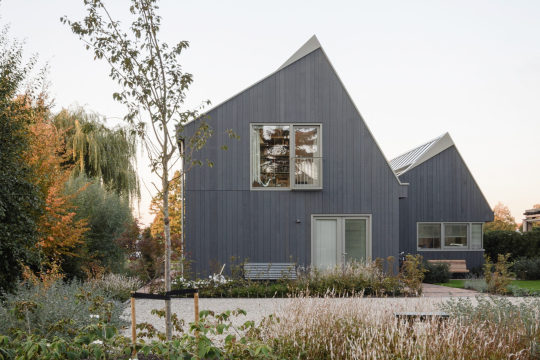
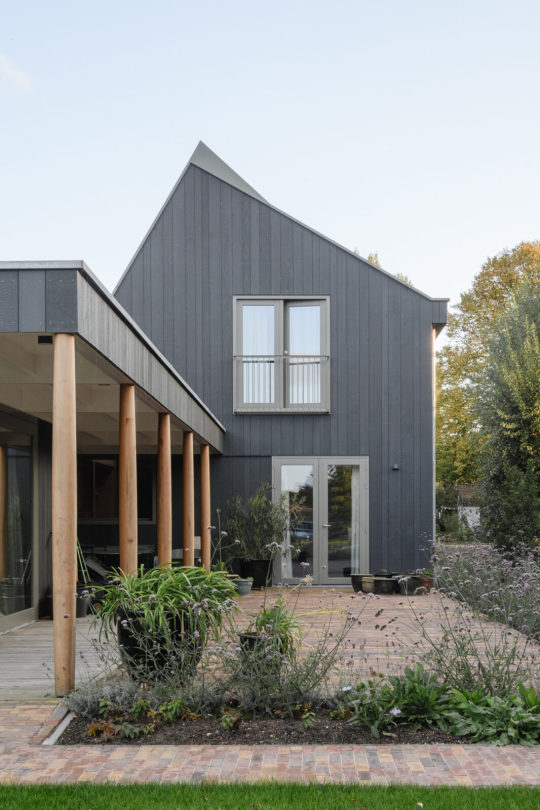
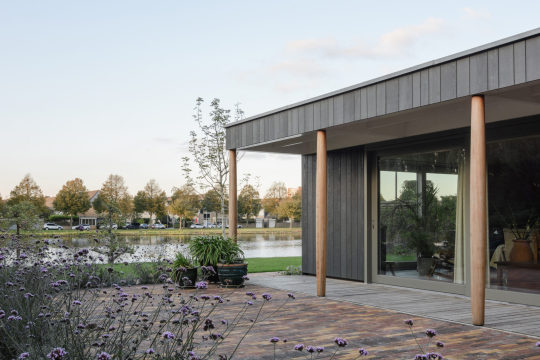

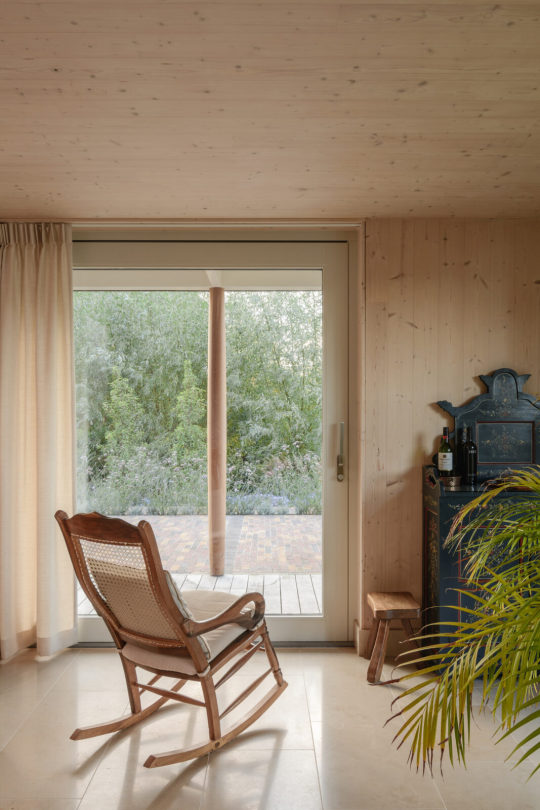

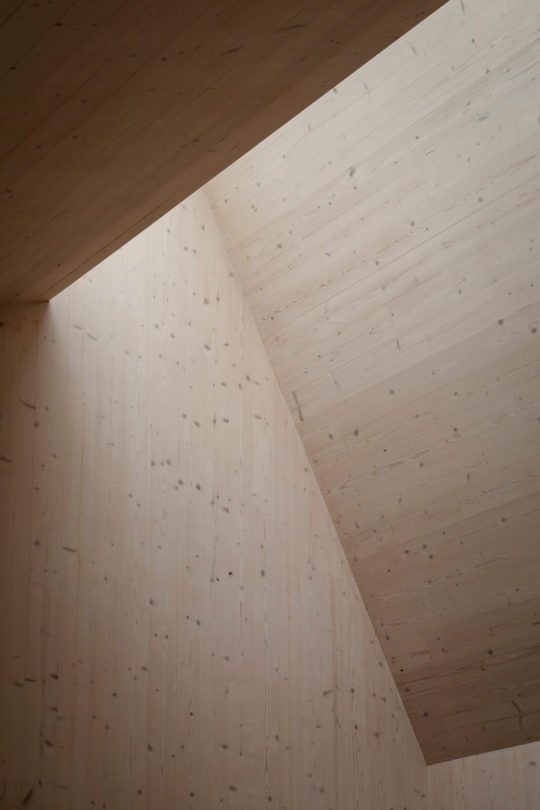
House Ringvaartplas, Rotterdam - Korteknie Stuhlmacher Architecten
#Korteknie Stuhlmacher Architecten#architecture#design#building#modern architecture#interiors#house#minimal#house design#interior design#timber#wood house#warm#light#living room#roof light#timber cladding#low cost#energy efficient home#netherlands
127 notes
·
View notes
Text
Solarpunk vs Home Building

Okay, let me talk about another solarpunk topic, that we really gotta talk about: Homes. And the way we construct them. Because let's put it like that: There is a lot wrong with it.
The amount of things wrong with it depends a lot on the country - and your income bracket. But generally we do think about it wrong. Especially in the west (and let's face it: Worst in the US) we have this idea that everyone needs their own home. And in general that this home should look a certain way, should have a certain size and all of that.
Of course, I think most people active in the Solarpunk sphere do know how bad suburbia is for nature. Because of the lawns, because of the amount of concrete. All of that. It harms biodiversity.
But even if you have a super natural space around it... Let's be quite honest: Single family buildings are bad for the environment, because the per person use of basically everything is a lot worse than it is with a multi-family home/complex.
The very obvious one is heating/cooling. Because it is in fact easier to keep a multifamily home warm or cool, compared to a single family home. If you have ever lived in a multifamily home you might have noticed it yourself, that you have to heat a lot less and that the temperature in summer is also more even. (Though of course the amount also depends on the efficiacy that the house is build with.)
This has to do with the fact that there is some amount of the temperatures exchanging between the different apartments of a building.
Now, you might ask: "But what about water and electricity? You do not use less of that, right?"
Which technically is right. Still, multi-family homes will still save energy on those things. Why? Because the infrastructure is more centralized. Basically, getting the water to the house uses up less energy and material. And the same goes with electricity.
It should be noted, however, that there is a bit more complexity to this. While the heat/cooling savings basically scale quite a lot, the same is not true for water. If you build a home over a certain height, the energy will end up being used on pumping the water up.
Generally six or seven floors are the optimum in most cases.
So, if we imagine a Solarpunk city, the thing that actually makes a lot of sense is to imagine rather wide buildings with about six floors and several families living inside.
Bonus: Some ammenities can actually be shared. And be it actually something more luxurious, like a shared gym or a shared pool in the basement.
#solarpunk#home buildings#houses#housing#cost of living#efficiency#energy#environmentalism#sustainability#suburbia sucks
26 notes
·
View notes
Text
Impact and innovation of AI in energy use with James Chalmers
New Post has been published on https://thedigitalinsider.com/impact-and-innovation-of-ai-in-energy-use-with-james-chalmers/
Impact and innovation of AI in energy use with James Chalmers
In the very first episode of our monhtly Explainable AI podcas, hosts Paul Anthony Claxton and Rohan Hall sat down with James Chalmers, Chief Revenue Officer of Novo Power, to discuss one of the most pressing issues in AI today: energy consumption and its environmental impact.
Together, they explored how AI’s rapid expansion is placing significant demands on global power infrastructures and what leaders in the tech industry are doing to address this.
The conversation covered various important topics, from the unique power demands of generative AI models to potential solutions like neuromorphic computing and waste heat recapture. If you’re interested in how AI shapes business and global energy policies, this episode is a must-listen.
Why this conversation matters for the future of AI
The rise of AI, especially generative models, isn’t just advancing technology; it’s consuming power at an unprecedented rate. Understanding these impacts is crucial for AI enthusiasts who want to see AI development continue sustainably and ethically.
As James explains, AI’s current reliance on massive datasets and intensive computational power has given it the fastest-growing energy footprint of any technology in history. For those working in AI, understanding how to manage these demands can be a significant asset in building future-forward solutions.
Main takeaways
AI’s power consumption problem: Generative AI models, which require vast amounts of energy for training and generation, consume ten times more power than traditional search engines.
Waste heat utilization: Nearly all power in data centers is lost as waste heat. Solutions like those at Novo Power are exploring how to recycle this energy.
Neuromorphic computing: This emerging technology, inspired by human neural networks, promises more energy-efficient AI processing.
Shift to responsible use: AI can help businesses address inefficiencies, but organizations need to integrate AI where it truly supports business goals rather than simply following trends.
Educational imperative: For AI to reach its potential without causing environmental strain, a broader understanding of its capabilities, impacts, and sustainable use is essential.
Meet James Chalmers
James Chalmers is a seasoned executive and strategist with extensive international experience guiding ventures through fundraising, product development, commercialization, and growth.
As the Founder and Managing Partner at BaseCamp, he has reshaped traditional engagement models between startups, service providers, and investors, emphasizing a unique approach to creating long-term value through differentiation.
Rather than merely enhancing existing processes, James champions transformative strategies that set companies apart, strongly emphasizing sustainable development.
Numerous accolades validate his work, including recognition from Forbes and Inc. Magazine as a leader of one of the Fastest-Growing and Most Innovative Companies, as well as B Corporation’s Best for The World and MedTech World’s Best Consultancy Services.
He’s also a LinkedIn ‘Top Voice’ on Product Development, Entrepreneurship, and Sustainable Development, reflecting his ability to drive substantial and sustainable growth through innovation and sound business fundamentals.
At BaseCamp, James applies his executive expertise to provide hands-on advisory services in fundraising, product development, commercialization, and executive strategy.
His commitment extends beyond addressing immediate business challenges; he prioritizes building competency and capacity within each startup he advises. Focused on sustainability, his work is dedicated to supporting companies that address one or more of the United Nations’ 17 Sustainable Development Goals through AI, DeepTech, or Platform Technologies.
About the hosts:
Paul Anthony Claxton – Q1 Velocity Venture Capital | LinkedIn
www.paulclaxton.io – am a Managing General Partner at Q1 Velocity Venture Capital… · Experience: Q1 Velocity Venture Capital · Education: Harvard Extension School · Location: Beverly Hills · 500+ connections on LinkedIn. View Paul Anthony Claxton’s profile on LinkedIn, a professional community of 1 billion members.

Rohan Hall – Code Genie AI | LinkedIn
Are you ready to transform your business using the power of AI? With over 30 years of… · Experience: Code Genie AI · Location: Los Angeles Metropolitan Area · 500+ connections on LinkedIn. View Rohan Hall’s profile on LinkedIn, a professional community of 1 billion members.
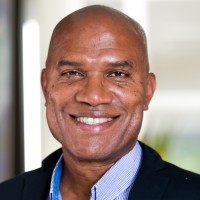

Like what you see? Then check out tonnes more.
From exclusive content by industry experts and an ever-increasing bank of real world use cases, to 80+ deep-dive summit presentations, our membership plans are packed with awesome AI resources.
Subscribe now
#ai#AI development#AI models#approach#Artificial Intelligence#bank#basecamp#billion#Building#Business#business goals#code#Community#Companies#computing#content#data#Data Centers#datasets#development#education#Emerging Technology#energy#energy consumption#Energy-efficient AI#engines#Environmental#environmental impact#Explainable AI#extension
3 notes
·
View notes
Text
after some xaku testing in the simulacrum, i understand the power of the lost now... that armor strip is insane
chewed through 20 140 lvl heavy gunners in like 2 seconds flat with grasp of lokh alone
i get it now

#andro talks#I UNDERSTAND NOW#i think i almost have a sp build now#still need to forma them at least once and unlock the exilus slot#2 of my mods arent max rank either bc im broke#and my energize and molt augumented arcanes are both r1#but holyshit STILL#im pretty sure i never had a damage output this high#downside is that its SO energy expensive#55% efficiency is beating my ass#equilibrium will need to do some heavy lifting here#xaku craves that energy
9 notes
·
View notes
Text
"AC Maintenance Tips for Homes and Businesses in Saudi Arabia’s Harsh Climate"
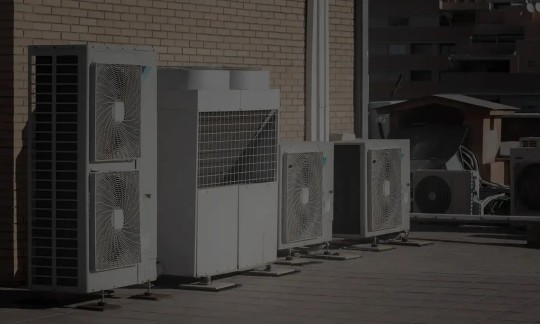
Air conditioning systems are vital for both homes and businesses in Saudi Arabia, where temperatures often soar to extreme levels. Ensuring that your AC unit functions at its best is essential not only for comfort but also for maintaining efficiency and reducing energy costs. Proper maintenance can prevent unexpected breakdowns during the hottest months, while also prolonging the lifespan of your system.
To maintain an efficient and reliable cooling system, many property owners opt for professional AC maintenance services to ensure their air conditioning units stay in top condition. Regular maintenance services can help identify potential issues before they escalate, avoiding costly repairs or the need for a full replacement.
1. Regular Filter Cleaning and Replacement
One of the simplest yet most effective maintenance tasks for any air conditioning system is regular filter cleaning or replacement. In Saudi Arabia’s dusty environment, filters can quickly become clogged with dust and debris, making the system work harder and reducing efficiency. Dirty filters restrict airflow, which not only increases energy usage but also decreases the unit's ability to cool properly. For both homes and businesses, it is recommended to clean or replace filters every one to three months, depending on the frequency of use.
2. Inspect and Clean Condenser Coils
The outdoor unit of your air conditioning system contains condenser coils that are responsible for releasing the heat absorbed from the indoor air. These coils are exposed to the elements, and in a harsh climate like Saudi Arabia, dust, dirt, and debris can easily accumulate. When the coils are dirty, the system's ability to dissipate heat is compromised, leading to reduced cooling performance and higher energy consumption. Regular cleaning of the condenser coils helps ensure optimal performance and efficiency.
3. Check Refrigerant Levels
For your AC system to cool effectively, it needs the correct amount of refrigerant. Low refrigerant levels can lead to inadequate cooling, causing the system to run longer and work harder. Over time, this can increase wear and tear on the unit and even lead to system failure. It’s important to have a professional check refrigerant levels during routine maintenance and top off as necessary to keep your system running smoothly.
4. Inspect Ductwork for Leaks
Leaky ductwork can significantly affect the efficiency of your air conditioning system, as cool air escapes before it reaches its intended destination. For businesses and larger properties, this can result in uneven cooling, higher energy bills, and an overworked AC unit. Regularly inspecting ductwork for leaks or gaps and sealing them as needed will help ensure that your air conditioning system is delivering cooled air efficiently.
5. Schedule Professional Maintenance
In Saudi Arabia’s extreme climate, scheduling professional AC maintenance at least twice a year is highly recommended. Professional technicians have the knowledge and tools to thoroughly inspect your system, clean essential components, and identify potential problems before they escalate. Businesses, in particular, can benefit from having a comprehensive maintenance plan to avoid costly downtime due to AC failure.
Whether you own a small home or manage a large commercial facility, regular AC rental service and maintenance are crucial for ensuring the longevity and efficiency of your cooling systems.
6. Optimize Thermostat Settings
Maintaining an optimal temperature setting on your thermostat can greatly impact energy usage and overall system performance. In Saudi Arabia, where temperatures can reach extreme highs, setting your thermostat just a few degrees higher can significantly reduce the strain on your AC unit. Additionally, programmable thermostats allow you to set different temperatures based on your schedule, which can help save energy when cooling is not needed.
7. Keep the Area Around the Outdoor Unit Clear
The outdoor unit of your air conditioner needs adequate airflow to function properly. Debris such as leaves, dirt, and plants can obstruct the airflow, causing the unit to work harder and reducing its efficiency. Regularly check and clear any debris from around the outdoor unit, and make sure that there is at least two feet of clearance on all sides to promote optimal airflow.
8. Ensure Proper Ventilation
Ventilation plays a crucial role in the effectiveness of your AC system, particularly in business settings where large numbers of people and equipment generate heat. Poor ventilation can increase humidity levels, making it harder for your air conditioner to cool the space. Make sure that vents and return air registers are not blocked by furniture or other obstructions, and consider using ceiling fans to help distribute cool air more evenly throughout the space.
Conclusion
Maintaining your air conditioning system is essential in Saudi Arabia’s harsh climate, where efficient cooling is a necessity rather than a luxury. By following these AC maintenance tips, you can ensure that your system operates efficiently, keeps energy costs under control, and provides reliable cooling when you need it most.
Investing in regular AC maintenance service is key to extending the life of your system and avoiding the discomfort and expense of unexpected breakdowns. Whether for a home or business, proper maintenance is a proactive step toward achieving consistent and cost-effective cooling year-round.
#Commercial chiller maintenance#HVAC maintenance#Chiller efficiency#AC maintenance service#Chiller rental service#Cooling solutions Saudi Arabia#Energy-efficient cooling#Chiller system repair#Chiller optimization#Facility management#Preventive maintenance#Refrigerant monitoring#Compressor maintenance#Saudi Arabia HVAC services#Cooling equipment upkeep#HVAC Maintenance#Chiller Maintenance#Commercial Cooling Solutions#Energy Efficiency#Saudi Arabia Climate Control#Building Management Systems#Facility Management#AC Maintenance Services#Chiller Rental Services#Sustainable Cooling Solutions#Industrial Cooling Systems#Preventive Maintenance Tips
3 notes
·
View notes
Link
This week in Westeck News - BC Building Code Changes coming May 01, 2023.
#building code#energy efficiency#zero carbon step code#bc building code#fenestration#windows#doors#high performance#patio doors#glass doors
2 notes
·
View notes
Text
"Boil water to turn fan" as if multistage steam turbine generators are not one of the sexiest kinds of machines every made
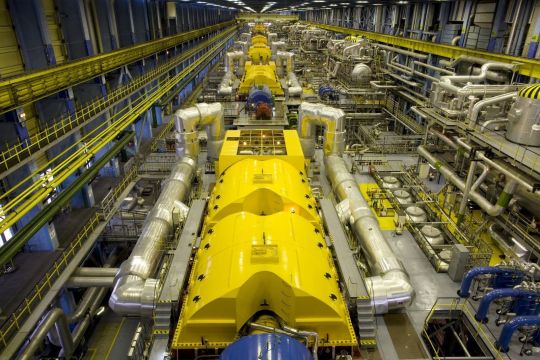
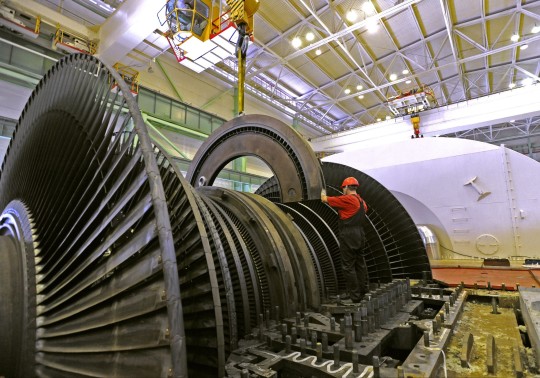
nuclear power is impressive until you get up to why. "we use the most precisely engineered machinery ever created to split atoms to release energy" oh yeah how come? "boil water to turn a fan" get the fuck out
#its genuinely crazy the math and engineering that go into making these absolutely massive steam turbines#its an incredible balancing act to optimize between the interconnected variables of pressure velocity and temperature in order#to extract as much energy as possible from the steam as it moves through the system#especially like. those generators need to maintain a very precise rotational speed in order to prevent the coupled generator#from going out of phase with the power grid#(3000 RPM for 50 Hz grids and 3600 RPM for 60 Hz grids)#like the reactor part sounds like a lot of engineering work (and it is!) but like. the turbine is fucking incredibly impressive too#each one of those turbine stages needs to have very specifically shaped blades in order to control steam pressure drop and steam velocity#and the blades need to be able to physically handle being in a wet (at least for nuclear plants where the steam is pretty wet) high temp#environment and constantly being spun at high rotational speeds for decades at a time.#we had to develop specialized nickel titanium superalloys with tightly controlled crystalline structures in order to build turbines this big#stare into the depths of “wow we really just use steam to spin a big fan that sounds simple” and you encounter#the lifes work of thousands of mathematicians computer engineers material scientists and mechanical engineers#the first device we could call a steam turbine was made as a toy in tthe first century ancient greece and egypt#the first steam turbine with a practical use was described in 1551 in Ottoman Egypt. it was used to turn a spit of meat over a fire.#the first modern multistage impluse steam turbine was made in 1884 and revolutionized electricity generation and marine propulsion#in the 141 years since there have been more improvements than one could even list#from major design changes credited to great men to miniscule efficiencies and optimizations gained from tweaking the composition of an alloy#idk. i think its beautiful to think about the web of human knowledge woven collectively by thousands of hands across history#could you imagine what the ancient greek engineers who first put together the prototype for an aeolipile would think to see what we have#made now. could they even recognize our designs as belonging to the same category of object as their little toy#anyway#appreciate the humble steam turbine with the same eye you give to the reactor core#mine#just my thoughts
61K notes
·
View notes
Text
Energy Saving Building Design
Marvel Homes specializes in energy-saving building design, creating sustainable, high-performance homes that maximize efficiency while reducing environmental impact. By integrating Passive House principles, airtight construction, superior insulation, and energy-efficient ventilation systems, Marvel Homes ensures minimal energy consumption and year-round comfort. Their designs harness natural light, solar energy, and smart home technologies to optimize efficiency without compromising style or luxury. Whether building new or upgrading existing structures, Marvel Homes delivers eco-friendly, cost-effective solutions that lower utility bills and promote a greener future. Choose Marvel Homes for sustainable, energy-efficient living tailored to your needs.
#Energy Saving Building Design#energy efficient house#energy-efficient passive houses#energy efficient house builders#energy efficient custom homes
0 notes
Text
(99+) Role and Importance of Architects in Enhancing Landscape Design in Cities
https://www.academia.edu/127284262/Role_and_Importance_of_Architects_in_Enhancing_Landscape_Design_in_Cities
#architecture#creative_design#design#disaster#Earth#energy-efficiency#Environment#green building#Greenwashing#Landscape#landscaping
0 notes
Text
Building Maintenance Companies in Tennessee

The goal of building maintenance is to ensure a comfortable environment for all users. This involves routine maintenance and preventive measures to sustain equipment and structures. When comfort levels begin to decline, building renovations step in.
To achieve all this and more, you need the expertise of a professional commercial building maintenance company.
Since 2006, at Servi-Tek Facility Maintenance Solutions, we have been delivering top-notch services in Tennessee and across the US. Continue reading to discover how we can elevate your building's maintenance to the next level.
How We Take Building Maintenance to the Next Level
Buildings, much like any other asset, naturally deteriorate with time. This wear and tear can compromise their structural integrity. Our services ensure that commercial facilities remain functional, safe, and inviting for their users. Here’s how we do it:
Asset Monitoring
Asset monitoring is a cost-effective way to enhance building maintenance. It tracks work orders and keeps a record of completed tasks. You’ll also gain insights into whether a particular asset needs replacing or repair.
Our fixed asset tracking system simplifies this process. It eliminates mountains of paperwork and allows you to quickly identify which assets are driving up costs or causing operational difficulties. With our system, facility details, operational data, and emergency protocols are accessible at your fingertips—saving your team time and effort.
Careful Planning and Resource Allocation
Facility managers often face the challenge of maintaining high standards under tight financial constraints. This is where meticulous planning and resource allocation come into play.
Our team offers various methods to optimize resource use. For instance, we can recommend energy-efficient solutions like solar panels or natural lighting. These not only reduce costs but also align with sustainability goals.
Plans for Emergency Response and Safety
Emergencies—whether they stem from natural disasters, health crises like COVID-19, or security breaches—require swift action. With years of industry experience, advanced skills, and cutting-edge technology, our team is equipped to address unforeseen situations before they escalate into significant problems.
Routine safety drills, evacuation plans, and comprehensive emergency protocols are part of our approach. These include contact lists for first responders, a record of frequent occupants, and step-by-step response guides.
All-in-One Maintenance Solutions
Simplifying building maintenance is every manager’s dream. With our 24/7 availability, expert team, and responsive customer service, you can meet all your facility’s maintenance needs with a single phone call. Forget juggling multiple vendors or certifications—we’ve got you covered.
Our professionals will create a tailored maintenance plan to ensure that your property remains in excellent working order year-round.
Benefits of Choosing Servi-Tek Building Maintenance Services in Tennessee
Facility maintenance is essential for the safety, comfort, and productivity of everyone using your building. Proper care not only extends the lifespan of your property but also enhances its value. Here’s how our services benefit you:
Ensure Occupant Safety
A poorly maintained building can jeopardize the safety of its users. Regular maintenance resolves issues like inadequate airflow, malfunctioning equipment, or uneven walkways, ensuring a safe and peaceful environment for all.
Flexibility and Experience
At Servi-Tek, we specialize in enhancing your business’s value through high-quality maintenance services. Our versatile and experienced team has been refining our expertise since 2006, offering a seamless management strategy that simplifies your life.
Save Time and Money
Delegating building maintenance to professionals frees up your time to focus on critical business activities. Our customizable services mean you only pay for what you need, helping you save money without compromising on quality.
Sustainability and Energy Efficiency
Neglected buildings often have higher energy consumption due to inefficiencies like leaks or poor insulation. Addressing these issues is not only eco-friendly but also cost-effective. Maintenance and repair reduce your reliance on new materials, saving time and resources while lowering your carbon footprint.
Create a Great Impression
A well-maintained property creates a positive first impression, boosting your brand’s image. Regular inspections help address weather-related damage to roofs, windows, and other exterior elements, ensuring your building remains presentable and inviting.
Avoid Major Repairs
Routine maintenance prevents unexpected breakdowns and costly repairs. By proactively addressing issues, our team ensures your building operates at peak performance. While occasional breakdowns are inevitable, early intervention minimizes disruptions and costs.
What Maintenance Procedures Fall Under Building Maintenance?
We offer comprehensive building maintenance services, including:
Routine Maintenance
Daily, monthly, and periodic tasks such as janitorial services, garbage disposal, snow removal, and pest control fall under routine maintenance. These also include minor repairs, like replacing broken light bulbs.
Condition-Based Maintenance
This proactive approach focuses on monitoring equipment for signs of failure rather than adhering to a fixed schedule. Our technicians check factors like temperature, vibration speed, and moisture levels to prevent unexpected breakdowns.
Corrective Maintenance
Corrective maintenance addresses issues identified during routine checks or other work orders. For example, a faulty HVAC component detected during a routine inspection can be scheduled for repair before it worsens.
Reactive Maintenance
Reactive maintenance tackles unplanned issues as they arise. While not ideal, this approach addresses unpredictable situations that require immediate attention.
Frequently Asked Questions
How quickly will you respond to an emergency call? Our emergency team is available 24/7. Call us, and we’ll respond as quickly as possible.
What is the price of your services? We customize pricing based on factors like location, job requirements, and facility size. Contact us to discuss your specific needs.
Are all your engineers and janitors certified professionals? Yes, all our staff undergo rigorous training and bring extensive experience to their roles.
What cleaning supplies do you use? We tailor our cleaning solutions to each facility’s unique needs, using eco-friendly options whenever possible. For specialized tasks, we deploy high-pressure, super-heated water and other advanced methods.
Can you provide professional advice before starting the work? Absolutely! We’re happy to offer expert guidance tailored to your property’s maintenance needs.
Simplify Your Building Maintenance with Servi-Tek
At Servi-Tek Facility Solutions, we understand the importance of reliable building maintenance. Our tailored services ensure your property’s safety, functionality, and appeal. Contact us today for a free quote and discover why we’re Tennessee’s trusted partner for facility maintenance.

#commercial cleaning#facilitymanagement#janitorial services#propertymanagement#building maintenance#energy efficiency#sustainability#servitek#facilitymaintenance
0 notes
Text
Germany making a big deal out of shutting down nuclear while wiping whole ancient forests and entire villages off the map to mine coal we wouldn't even need since a lot of coal powered power plants produce more than necessary and are lying dormant because renewables produce a ton of power but blocking more renewable energy sources and more efficient and environment friendly heating systems and all done with the support of the Green Party and I'm just going insane over here


I wish all environmentalists a very suck cocks in hell
#The green party literally sold the forest to an energy company in some stupid deal to stay in power#Nuclear is safest and most efficient#But we fucked ourselves hard and don't have the water needed for them anymore#Also not a single party supports it#But hey at least Elon can use up half the water and poison the other to build his shitty exploding cars#Very good#I fucking hate Germany#And climate activist are jailed PREEMPTIVELY#And tortured and run over with cars and people cheer#While nazis can march undisturbed and with police protection and everyone calls that 'freedom of speech'#Going insane
32K notes
·
View notes
Text
Dang, It’s Cold! Building Shell and HVAC Efficiency in Winter❄️
Dang, it’s cold! ❄️ Stay cozy this winter with tips on building shell and HVAC efficiency. 🌬️#WinterReady #HVACTips
Dang, It’s Cold! Building Shell and HVAC Efficiency in Winter Dang, it’s cold! Winter has a way of being both stunning and unforgiving. This beautiful image, Winter Face by Uldus Bakhtiozina, captures the duality of the season. The serene, frosty beauty of snow-covered mornings is breathtaking—but the bitter cold quickly reminds us how essential preparation is. When temperatures drop into the…

View On WordPress
#air sealing#building shell#energy efficiency#heat pumps#heating emergencies#holistic HVAC approach#HVAC installation#indoor air quality#insulation#winter heheating tips
0 notes
Text
New START.nano cohort is developing solutions in health, data storage, power, and sustainable energy
New Post has been published on https://thedigitalinsider.com/new-start-nano-cohort-is-developing-solutions-in-health-data-storage-power-and-sustainable-energy/
New START.nano cohort is developing solutions in health, data storage, power, and sustainable energy


MIT.nano has announced seven new companies to join START.nano, a program aimed at speeding the transition of hard-tech innovation to market. The program supports new ventures through discounted use of MIT.nano’s facilities and access to the MIT innovation ecosystem.
The advancements pursued by the newly engages startups include wearables for health care, green alternatives to fossil fuel-based energy, novel battery technologies, enhancements in data systems, and interconnecting nanofabrication knowledge networks, among others.
“The transition of the grand idea that is imagined in the laboratory to something that a million people can use in their hands is a journey fraught with many challenges,” MIT.nano Director Vladimir Bulović said at the 2024 Nano Summit, where nine START.nano companies presented their work. The program provides resources to ease startups over the first two hurdles — finding stakeholders and building a well-developed prototype.
In addition to access to laboratory tools necessary to advance their technologies, START.nano companies receive advice from MIT.nano expert staff, are connected to MIT.nano Consortium companies, gain a broader exposure at MIT conferences and community events, and are eligible to join the MIT Startup Exchange.
“MIT.nano has allowed us to push our project to the frontiers of sensing by implementing advanced fabrication techniques using their machinery,” said Uroš Kuzmanović, CEO and founder of Biosens8. “START.nano has surrounded us with exciting peers, a strong support system, and a spotlight to present our work. By taking advantage of all that the program has to offer, BioSens8 is moving faster than we could anywhere else.”
Here are the seven new START.nano participants:
Analog Photonics is developing lidar and optical communications technology using silicon photonics.
Biosens8 is engineering novel devices to enable health ownership. Their research focuses on multiplexed wearables for hormones, neurotransmitters, organ health markers, and drug use that will give insight into the body’s health state, opening the door to personalized medicine and proactive, data-driven health decisions.
Casimir, Inc. is working on power-generating nanotechnology that interacts with quantum fields to create a continuous source of power. The team compares their technology to a solar panel that works in the dark or a battery that never needs to be recharged.
Central Spiral focuses on lossless data compression. Their technology allows for the compression of any type of data, including those that are already compressed, reducing data storage and transmission costs, lowering carbon dioxide emissions, and enhancing efficiency.
FabuBlox connects stakeholders across the nanofabrication ecosystem and resolves issues of scattered, unorganized, and isolated fab knowledge. Their cloud-based platform combines a generative process design and simulation interface with GitHub-like repository building capabilities.
Metal Fuels is converting industrial waste aluminum to onsite energy and high-value aluminum/aluminum-oxide powders. Their approach combines existing mature technologies of molten metal purification and water atomization to develop a self-sustaining reactor that produces alumina of higher value than our input scrap aluminum feedstock, while also collecting the hydrogen off-gas.
PolyJoule, Inc. is an energy storage startup working on conductive polymer battery technology. The team’s goal is a grid battery of the future that is ultra-safe, sustainable, long living, and low-cost.
In addition to the seven startups that are actively using MIT.nano, nine other companies have been invited to join the latest START.nano cohort:
Acorn Genetics
American Boronite Corp.
Copernic Catalysts
Envoya Bio
Helix Carbon
Minerali
Plaid Semiconductors
Quantum Network Technologies
Wober Tech
Launched in 2021, START.nano now comprises over 20 companies and eight graduates — ventures that have moved beyond the initial startup stages and some into commercialization.
#2024#Advice#aluminum#analog#approach#battery#Building#carbon#Carbon dioxide#carbon dioxide emissions#CEO#Cloud#Collaboration#communications#Community#Companies#compression#continuous#Dark#data#data storage#data-driven#Design#devices#drug#efficiency#Emissions#energy#energy storage#engineering
0 notes
Text
An energy consultancy in UAE is essential for reducing energy consumption, lowering costs, and supporting sustainability goals. Energy consultancy services and energy audit companies in the region provide expert guidance to identify inefficiencies in systems like HVAC, lighting, and insulation. By leveraging building energy modeling techniques, these audits deliver tailored solutions to optimize energy usage and align with initiatives like the UAE Energy Strategy 2050. Implementing the recommendations from an energy efficiency audit helps businesses and households reduce costs, comply with regulations, and contribute to a sustainable future.
0 notes
Text
Innovative Aerogel Powder from Minmetals East
I'm excited to share the latest development in the Chemical Manufacturing and Industrial Materials sector with you all! Minmetals East has introduced a groundbreaking aerogel powder that is set to revolutionize the Silica Products and Adhesives industry. This lightweight material offers exceptional thermal insulation properties, making it perfect for various applications in construction materials and water treatment processes.
Aerogel powder not only enhances the performance of construction materials but also contributes to more sustainable building practices. Its versatility allows for innovative solutions that can improve energy efficiency and reduce environmental impact.
I would love to hear your thoughts on how aerogel powder could be utilized in your projects or industries. Let's discuss the endless possibilities together!
#energy efficiency#water treatment#Minmetals East#aerogel powder#sustainable building practices#silica products#environmental impact#construction materials
0 notes